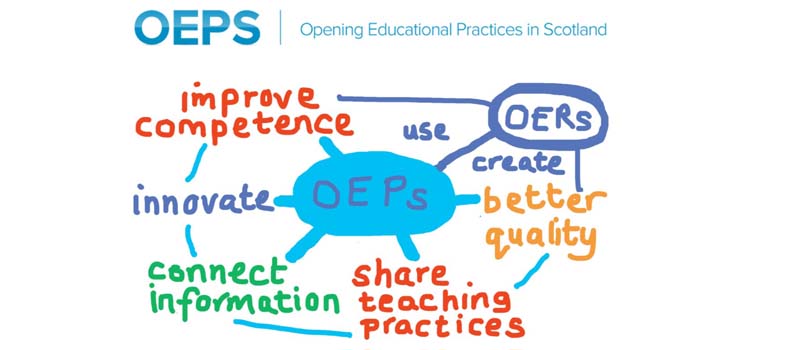Dyslexia Scotland
'Introduction to Dyslexia and Inclusive Practice’ is the first of three linked open courses developed to meet a gap in training around supporting learners with dyslexia.
Launched in March 2017 during Open Education Week, the course was developed by the Making Sense Working Group, which includes representatives from The Scottish Government, Dyslexia Scotland and Education Scotland, in partnership with the Opening Educational Practices in Scotland (OEPS) project. (The Making Sense Working Group was established to oversee the implementation of recommendations from the Scottish Government's 2014 review into Dyslexia.)
The Making Sense Working Group felt that it was essential that the course was free to avoid a scenario where quality training for school staff to support pupils with dyslexia and inclusive practice was dependent on whether funding was available at school or local authority level. (This is a particular issue in the current environment when local authorities' budgets are stretched.) It was also important that neither the participants nor those responsible for developing the course incurred ongoing assessment costs.
Fran Ranaldi from Education Scotland who led the project described it as, 'fortuitous', that Dyslexia Scotland made the connection with OEPS when discussions were under way about creating free new online courses. In addition to providing significant technical support, OEPS helped to clarify the audience for the course. Initially, it had been anticipated that the course would target anyone with an interest in dyslexia. However, as it was important that the course was recognised by the General Teaching Council for Scotland (GTCS), the primarily audience of the modules is teachers, although they are accessible and relevant to anyone with an interest in inclusive practice.
The first module, 'Introduction to Dyslexia and Inclusive Practice’, will provide an awareness of dyslexia, its impact and how it can be supported within a school or a community. Although the course has been designed so it can be accessed by individuals at a time, pace and place that suits them, Dyslexia Scotland has also received funding from the Scottish Government to develop a day-long Masterclass for anyone who would like to take the module as part of a group.
Participants who successfully complete each module, will receive an online badge which is recognised by Dyslexia Scotland. In addition, participants who take Module 3 will be able to apply to the GTCS for 'Professional Recognition in Dyslexia and Inclusive Practice'.
Take up of the courses is expected to be high given an unmet demand from teachers for further training in dyslexia. Indeed, within a fortnight of 'Introduction to Dyslexia and Inclusive Practice’ being launch, over 250 people had signed up for the course.
An unforeseen but added bonus of creating a series of open courses (with OEPS) is that the material can be adapted and reversioned by local authorities and others. This not only saves reinventing the wheel, but will also ensure consistency in how dyslexia is defined, discussed and supported. The open nature of the courses will also allow Dyslexia Scotland to tweak the courses in the future for different audiences such as parents and employers.
As 'Introduction to Dyslexia and Inclusive Practice’ is the first open course that the Making Sense Working Group has developed, it has triggered significant interest and a better understanding of open educational resources (OER) within the groups’ stakeholder organisations which include the Scottish Teacher Education Committee, the Directors of Education in Scotland and the Convention of Scottish Local Authorities (COSLA). As a result there is now more awareness of how openly licensed courses could offer cost-effective and accessible training for training in other areas such as autism and English as an additional language.
Fran expressed regret that the OEPS project was coming to an end just as people were starting to grasp the potential of OER. However, she is confident that the training and support she has received from OEPS will stand her in good stead to create more open courses and to support colleagues within Education Scotland who wish to develop their OER in other areas.
Modules 2 and 3 in this series of courses, will be completed later this year and launched respectively in September 2017 and January 2018. All three modules will be hosted on the OU platform, OpenLearn.
